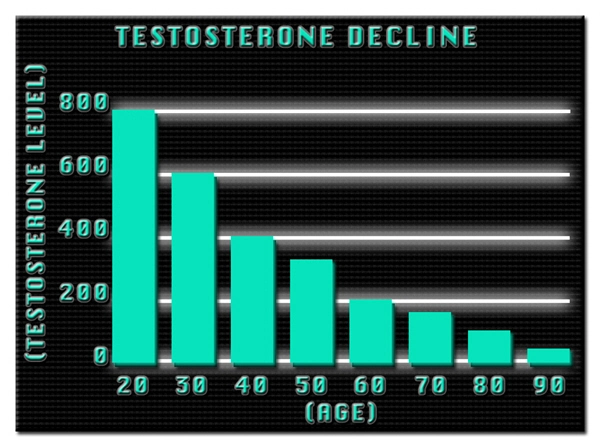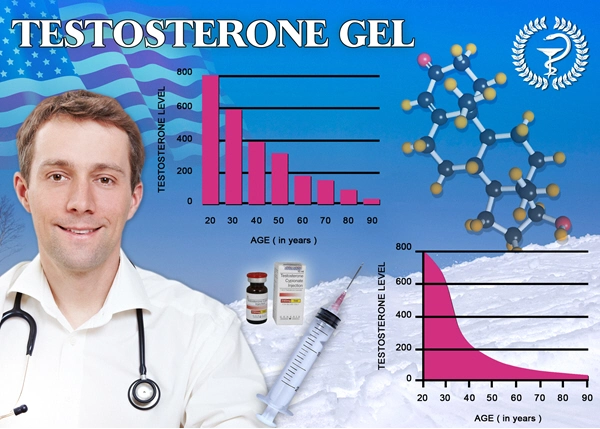Introduction
Testosterone Cypionate, a widely used injectable form of testosterone replacement therapy, has garnered significant attention for its role in managing hypogonadism and other testosterone deficiency-related conditions. While its benefits in enhancing muscle mass, bone density, and overall well-being are well-documented, concerns regarding its impact on cardiovascular health have prompted extensive research. This article delves into the effects of Testosterone Cypionate on lipid profiles, specifically focusing on HDL (high-density lipoprotein), LDL (low-density lipoprotein), and triglycerides in American males. Understanding these effects is crucial for healthcare providers and patients alike to make informed decisions about testosterone therapy.
Impact on HDL Cholesterol
Testosterone Cypionate's influence on HDL cholesterol, often referred to as "good" cholesterol, is a subject of considerable debate. Studies have shown that testosterone therapy can lead to a reduction in HDL levels. A meta-analysis published in the *Journal of Clinical Endocrinology & Metabolism* found that testosterone administration resulted in a statistically significant decrease in HDL cholesterol by approximately 5-10%. This reduction could potentially elevate the risk of cardiovascular disease, as HDL plays a vital role in removing excess cholesterol from the bloodstream and transporting it to the liver for disposal.
Effects on LDL Cholesterol
Conversely, the impact of Testosterone Cypionate on LDL cholesterol, known as "bad" cholesterol, appears to be less consistent across studies. Some research indicates a slight increase in LDL levels following testosterone therapy, while other studies report no significant change. A study conducted at the University of California, Los Angeles, observed a modest increase in LDL cholesterol among participants receiving testosterone therapy. However, the clinical significance of this increase remains uncertain, as the absolute changes in LDL levels were relatively small and did not necessarily translate into increased cardiovascular risk.
Influence on Triglyceride Levels
Triglycerides, another critical component of the lipid profile, have also been examined in the context of testosterone therapy. The evidence suggests that Testosterone Cypionate may lead to a decrease in triglyceride levels. A clinical trial published in *The Journal of the American Medical Association* demonstrated that men receiving testosterone therapy experienced a reduction in triglycerides by an average of 15%. Lower triglyceride levels are generally associated with a reduced risk of cardiovascular disease, suggesting a potential cardiovascular benefit from testosterone therapy in this regard.
Cardiovascular Risk Factors and Overall Impact
The overall impact of Testosterone Cypionate on cardiovascular risk factors is complex and multifaceted. While the reduction in HDL cholesterol is a concern, the potential decrease in triglycerides may offer some counterbalance. Moreover, other cardiovascular risk factors such as blood pressure and insulin resistance must also be considered. Some studies have reported no significant changes in blood pressure with testosterone therapy, while others have noted slight increases. Similarly, the impact on insulin resistance varies, with some evidence suggesting an improvement in insulin sensitivity.
Clinical Implications and Recommendations
Given the mixed effects on lipid profiles and cardiovascular risk factors, healthcare providers must approach testosterone therapy with caution and individualize treatment plans. Regular monitoring of lipid profiles, along with other cardiovascular risk markers, is essential for patients undergoing testosterone therapy. Patients should be counseled on the potential risks and benefits and encouraged to adopt a heart-healthy lifestyle, including a balanced diet, regular exercise, and smoking cessation.
Conclusion
Testosterone Cypionate's impact on lipid profiles and cardiovascular risk factors in American males is a nuanced topic that requires careful consideration. While it may lead to a decrease in HDL cholesterol and a potential increase in LDL cholesterol, the reduction in triglycerides could offer some cardiovascular benefits. As research continues to evolve, a personalized approach to testosterone therapy, coupled with vigilant monitoring and lifestyle interventions, remains the best strategy to optimize patient outcomes while minimizing risks.

- Testosterone Cypionate: Managing Low Levels in Aging American Men [Last Updated On: February 21st, 2025] [Originally Added On: February 21st, 2025]
- Testosterone Cypionate: Managing Chronic Conditions in American Men [Last Updated On: March 17th, 2025] [Originally Added On: March 17th, 2025]
- Testosterone Cypionate Therapy: Insurance, Providers, and Lifestyle for Optimal Male Health [Last Updated On: March 17th, 2025] [Originally Added On: March 17th, 2025]
- Testosterone Cypionate's Impact on Sleep Patterns in American Males: A Comprehensive Analysis [Last Updated On: March 18th, 2025] [Originally Added On: March 18th, 2025]
- Testosterone Cypionate: Enhancing Mental Clarity in American Men - Experiences and Insights [Last Updated On: March 18th, 2025] [Originally Added On: March 18th, 2025]
- Testosterone Cypionate: Medical Uses and Social Stigma in American Males [Last Updated On: March 19th, 2025] [Originally Added On: March 19th, 2025]
- Mastering Testosterone Cypionate Injections: A Guide for American Males [Last Updated On: March 20th, 2025] [Originally Added On: March 20th, 2025]
- Testosterone Cypionate: Benefits, Risks, and Prostate Health Monitoring for American Men [Last Updated On: March 21st, 2025] [Originally Added On: March 21st, 2025]
- Testosterone Cypionate: A Potential Aid in Weight Management for American Men [Last Updated On: March 21st, 2025] [Originally Added On: March 21st, 2025]
- Testosterone Cypionate's Effects on Skin Health in American Men: Acne, Elasticity, Hair [Last Updated On: March 21st, 2025] [Originally Added On: March 21st, 2025]
- Testosterone Cypionate: Enhancing Libido in American Males - Benefits and Risks [Last Updated On: March 22nd, 2025] [Originally Added On: March 22nd, 2025]
- Testosterone Cypionate: Debunking Myths and Presenting Facts for American Men's Health [Last Updated On: March 22nd, 2025] [Originally Added On: March 22nd, 2025]
- Long-term Testosterone Cypionate Use: Impacts on American Men's Health [Last Updated On: March 22nd, 2025] [Originally Added On: March 22nd, 2025]
- Managing Testosterone Cypionate Side Effects: Strategies for American Men on TRT [Last Updated On: March 22nd, 2025] [Originally Added On: March 22nd, 2025]
- Testosterone Cypionate's Impact on Emotional Well-being in American Men [Last Updated On: March 22nd, 2025] [Originally Added On: March 22nd, 2025]
- Testosterone Cypionate Therapy: Costs, Coverage, and Cost-Saving Strategies for American Males [Last Updated On: March 22nd, 2025] [Originally Added On: March 22nd, 2025]
- Testosterone Cypionate: Enhancing Diabetes Management in American Males [Last Updated On: March 23rd, 2025] [Originally Added On: March 23rd, 2025]
- Testosterone Cypionate's Impact on Immune Function in American Males: Latest Research [Last Updated On: March 23rd, 2025] [Originally Added On: March 23rd, 2025]
- Testosterone Cypionate: A Vital Tool for Transgender American Males' Transition [Last Updated On: March 23rd, 2025] [Originally Added On: March 23rd, 2025]
- Testosterone Cypionate: Benefits, Risks, and Guidelines for Hypogonadism Treatment [Last Updated On: March 23rd, 2025] [Originally Added On: March 23rd, 2025]
- Testosterone Cypionate's Impact on Vision Health in American Males: Benefits and Risks [Last Updated On: March 24th, 2025] [Originally Added On: March 24th, 2025]
- Testosterone Cypionate's Impact on Kidney Function in American Men: A Comprehensive Review [Last Updated On: March 24th, 2025] [Originally Added On: March 24th, 2025]
- Testosterone Cypionate's Impact on Cholesterol Levels in American Men: Risks and Management [Last Updated On: March 24th, 2025] [Originally Added On: March 24th, 2025]
- Testosterone Cypionate's Impact on Liver Health in American Males: Risks and Management [Last Updated On: March 24th, 2025] [Originally Added On: March 24th, 2025]
- Testosterone Cypionate: A Promising Treatment for Depression in American Males [Last Updated On: March 24th, 2025] [Originally Added On: March 24th, 2025]
- Testosterone Cypionate's Impact on Digestive Health in American Men: A Comprehensive Review [Last Updated On: March 24th, 2025] [Originally Added On: March 24th, 2025]
- Testosterone Cypionate's Impact on Male Pattern Baldness in American Men: Mechanisms and Management [Last Updated On: March 24th, 2025] [Originally Added On: March 24th, 2025]
- Testosterone Cypionate: Monitoring Blood Levels for Safe, Effective Therapy in American Men [Last Updated On: March 25th, 2025] [Originally Added On: March 25th, 2025]
- Testosterone Cypionate's Impact on Blood Pressure in American Men: A Comprehensive Review [Last Updated On: March 25th, 2025] [Originally Added On: March 25th, 2025]
- Testosterone Cypionate's Impact on Hearing Health in American Men: An Emerging Link [Last Updated On: March 25th, 2025] [Originally Added On: March 25th, 2025]
- Testosterone Cypionate's Impact on Joint Health: Benefits and Risks for American Men [Last Updated On: March 25th, 2025] [Originally Added On: March 25th, 2025]
- Testosterone Cypionate: A Promising Treatment for Chronic Fatigue in American Males [Last Updated On: March 25th, 2025] [Originally Added On: March 25th, 2025]
- Testosterone Cypionate and Hair Loss: Mechanisms, Risks, and Management for American Men [Last Updated On: March 25th, 2025] [Originally Added On: March 25th, 2025]
- Testosterone Cypionate: Enhancing Cognitive Function in American Men with Low Testosterone [Last Updated On: March 25th, 2025] [Originally Added On: March 25th, 2025]
- Testosterone Cypionate: Balancing Benefits and Cardiovascular Risks in American Men [Last Updated On: March 25th, 2025] [Originally Added On: March 25th, 2025]
- Testosterone Cypionate's Impact on Red Blood Cell Production in American Men on TRT [Last Updated On: March 26th, 2025] [Originally Added On: March 26th, 2025]
- Testosterone Cypionate: Enhancing Injury Recovery in American Males [Last Updated On: March 26th, 2025] [Originally Added On: March 26th, 2025]
- Testosterone Cypionate: Legal Status and Prescription Guidelines for American Males [Last Updated On: March 27th, 2025] [Originally Added On: March 27th, 2025]
- Testosterone Cypionate: Enhancing Energy in American Men with Low Testosterone [Last Updated On: March 27th, 2025] [Originally Added On: March 27th, 2025]
- Testosterone Cypionate: Benefits, Risks, and Safe Usage for American Men [Last Updated On: March 27th, 2025] [Originally Added On: March 27th, 2025]
- Testosterone Cypionate's Impact on Mental Health in American Males: Benefits and Risks [Last Updated On: March 27th, 2025] [Originally Added On: March 27th, 2025]
- Testosterone Cypionate: Enhancing Muscle, Reducing Fat in American Men's Health [Last Updated On: March 27th, 2025] [Originally Added On: March 27th, 2025]
- Testosterone Cypionate's Impact on Neurological Health in American Men: A Comprehensive Review [Last Updated On: March 27th, 2025] [Originally Added On: March 27th, 2025]
- Testosterone Cypionate: A Novel Approach to Osteoporosis in American Males [Last Updated On: March 28th, 2025] [Originally Added On: March 28th, 2025]
- Testosterone Cypionate: A Promising Treatment for Allergies in American Males [Last Updated On: March 28th, 2025] [Originally Added On: March 28th, 2025]
- Testosterone Cypionate: A Promising Therapy for Autoimmune Disorders in American Men [Last Updated On: March 28th, 2025] [Originally Added On: March 28th, 2025]
- Testosterone Cypionate: Potential Benefits for Acne, Psoriasis, and Eczema in American Males [Last Updated On: March 29th, 2025] [Originally Added On: March 29th, 2025]
- Testosterone Cypionate's Impact on Lung Function in American Men: Recent Findings [Last Updated On: March 29th, 2025] [Originally Added On: March 29th, 2025]
- Testosterone Cypionate's Impact on Thyroid Function in American Males: A Comprehensive Analysis [Last Updated On: March 29th, 2025] [Originally Added On: March 29th, 2025]
- Testosterone Cypionate: A Novel Pain Management Strategy for American Males [Last Updated On: March 29th, 2025] [Originally Added On: March 29th, 2025]
- Testosterone Cypionate's Impact on Dental Health: Insights for American Men on TRT [Last Updated On: March 30th, 2025] [Originally Added On: March 30th, 2025]
- Testosterone Cypionate's Impact on Eye Health in American Men: A Comprehensive Review [Last Updated On: March 30th, 2025] [Originally Added On: March 30th, 2025]
- Testosterone Cypionate: Effects, Risks, and Management for American Men [Last Updated On: April 1st, 2025] [Originally Added On: April 1st, 2025]
- Testosterone Cypionate: A Promising Therapy for Respiratory Health in American Males [Last Updated On: April 2nd, 2025] [Originally Added On: April 2nd, 2025]
- Testosterone Cypionate: Impacts on Male Reproductive Health in American Males [Last Updated On: April 4th, 2025] [Originally Added On: April 4th, 2025]
- Testosterone Cypionate's Impact on Urinary Health in American Men: A Comprehensive Review [Last Updated On: April 5th, 2025] [Originally Added On: April 5th, 2025]
- Testosterone Cypionate: Managing Metabolic Disorders in American Males [Last Updated On: April 6th, 2025] [Originally Added On: April 6th, 2025]
- Testosterone Cypionate: Enhancing Musculoskeletal Health in American Males [Last Updated On: April 6th, 2025] [Originally Added On: April 6th, 2025]
- Testosterone Cypionate's Impact on Gastrointestinal Health in American Males: A Comprehensive Review [Last Updated On: April 7th, 2025] [Originally Added On: April 7th, 2025]
- Testosterone Cypionate's Cardiovascular Effects: Risks, Benefits, and Management Strategies [Last Updated On: April 7th, 2025] [Originally Added On: April 7th, 2025]
- Testosterone Cypionate's Impact on Immune System in American Men: Risks and Benefits [Last Updated On: April 9th, 2025] [Originally Added On: April 9th, 2025]
- Testosterone Cypionate's Impact on Skin Health in American Men: Effects and Management [Last Updated On: April 9th, 2025] [Originally Added On: April 9th, 2025]
- Testosterone Cypionate's Role in Treating Neurological Disorders in American Males [Last Updated On: April 10th, 2025] [Originally Added On: April 10th, 2025]
- Testosterone Cypionate: Effects on Genitourinary System in American Men [Last Updated On: April 10th, 2025] [Originally Added On: April 10th, 2025]
- Testosterone Cypionate's Impact on Respiratory Health in American Men: Benefits and Risks [Last Updated On: April 12th, 2025] [Originally Added On: April 12th, 2025]
- Testosterone Cypionate: Impacts on Muscle, Bone Health in American Males [Last Updated On: April 12th, 2025] [Originally Added On: April 12th, 2025]
- Testosterone Cypionate's Impact on Kidney Function: Risks and Management Strategies [Last Updated On: April 13th, 2025] [Originally Added On: April 13th, 2025]
- Testosterone Cypionate's Emerging Role in Treating Hematological Disorders in American Males [Last Updated On: April 13th, 2025] [Originally Added On: April 13th, 2025]
- Testosterone Cypionate: Managing Endocrine Disorders in American Males [Last Updated On: April 15th, 2025] [Originally Added On: April 15th, 2025]
- Testosterone Cypionate: Psychiatric Impacts on American Men's Mental Health [Last Updated On: April 15th, 2025] [Originally Added On: April 15th, 2025]
- Testosterone Cypionate: Exploring Its Use in Dermatology for American Males [Last Updated On: April 16th, 2025] [Originally Added On: April 16th, 2025]
- Testosterone Cypionate's Impact on Hemoglobin and Hematocrit in American Men [Last Updated On: April 17th, 2025] [Originally Added On: April 17th, 2025]
- Testosterone Cypionate: A Promising Therapy for Respiratory Disorders in American Males [Last Updated On: April 17th, 2025] [Originally Added On: April 17th, 2025]
- Testosterone Cypionate's Psychiatric Impact on American Men: Benefits and Risks [Last Updated On: April 18th, 2025] [Originally Added On: April 18th, 2025]
- Testosterone Cypionate's Impact on Gastrointestinal Health in American Men [Last Updated On: April 19th, 2025] [Originally Added On: April 19th, 2025]
- Testosterone Cypionate: Impacts on Male Endocrine System and Therapeutic Considerations [Last Updated On: April 19th, 2025] [Originally Added On: April 19th, 2025]
- Testosterone Cypionate's Neurological Impact on American Men: Benefits and Risks [Last Updated On: April 20th, 2025] [Originally Added On: April 20th, 2025]
- Testosterone Cypionate's Role in Managing Renal Disorders in American Males: Emerging Evidence [Last Updated On: April 20th, 2025] [Originally Added On: April 20th, 2025]
- Testosterone Cypionate: Effective Hypogonadism Treatment for American Men [Last Updated On: April 20th, 2025] [Originally Added On: April 20th, 2025]
- Testosterone Cypionate: Benefits, Risks, and Impact on American Male Health [Last Updated On: April 21st, 2025] [Originally Added On: April 21st, 2025]



List of USA state clinics - click a flag below for blood testing clinics.
Word Count: 606


















































